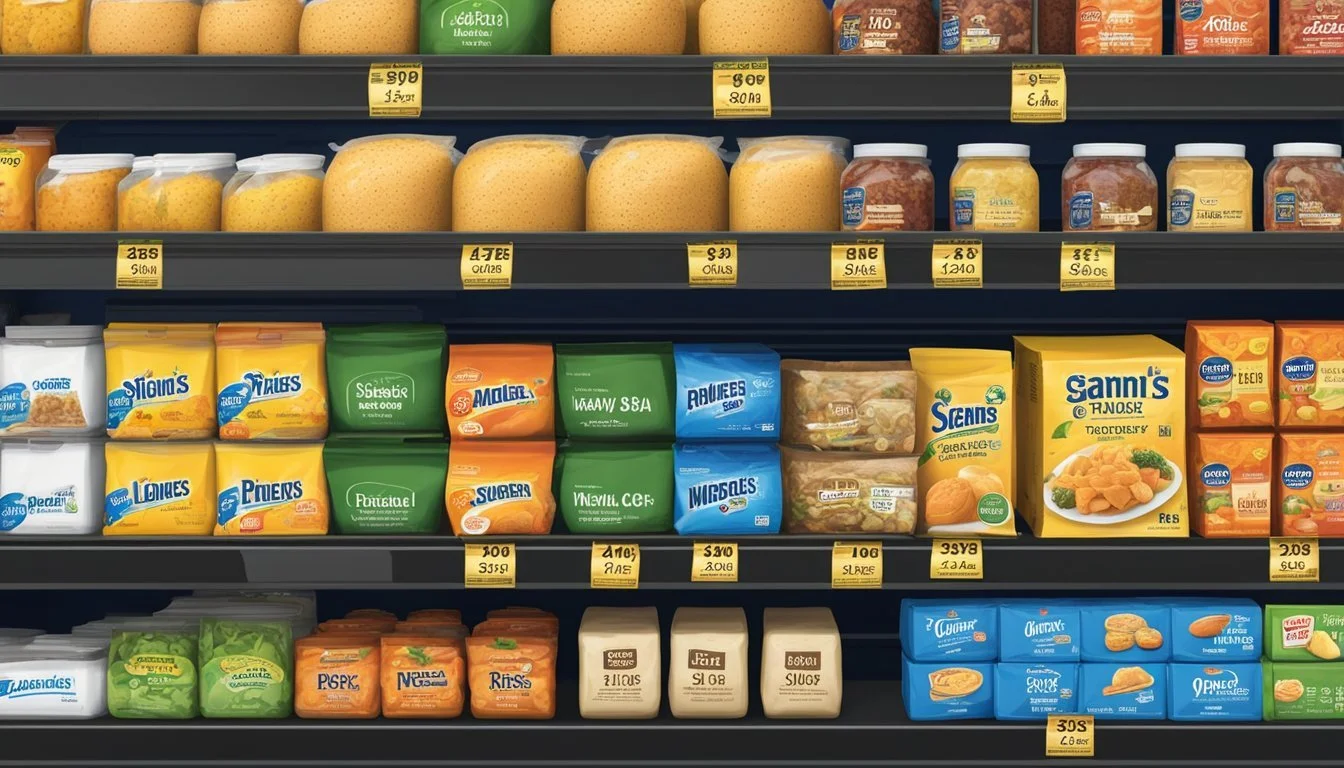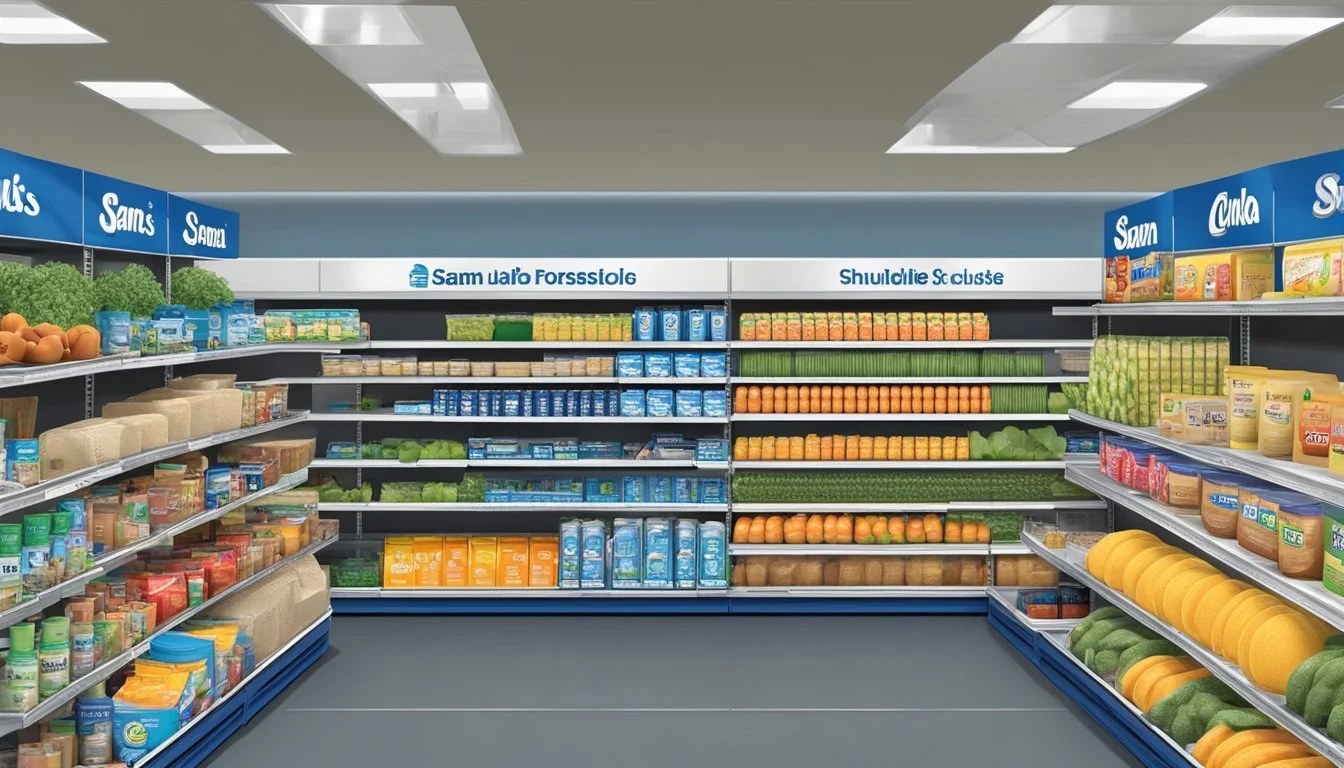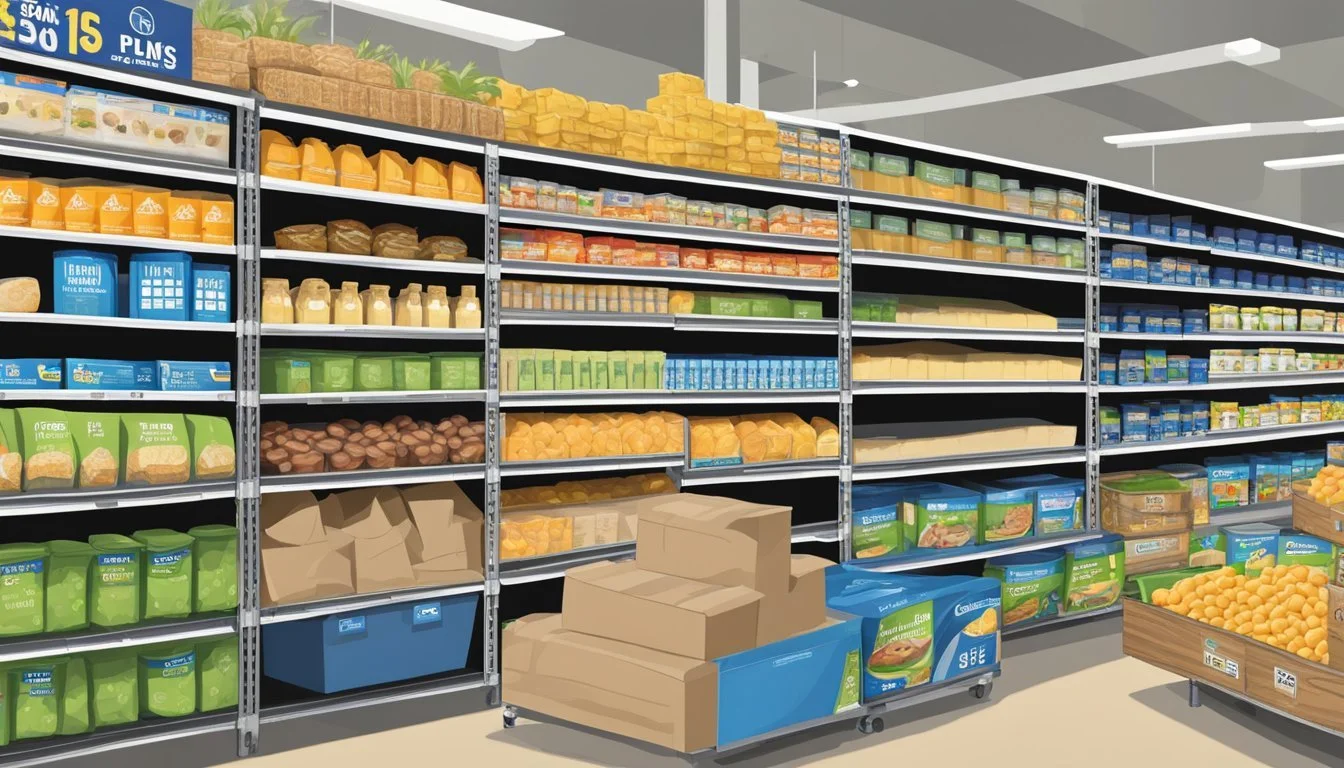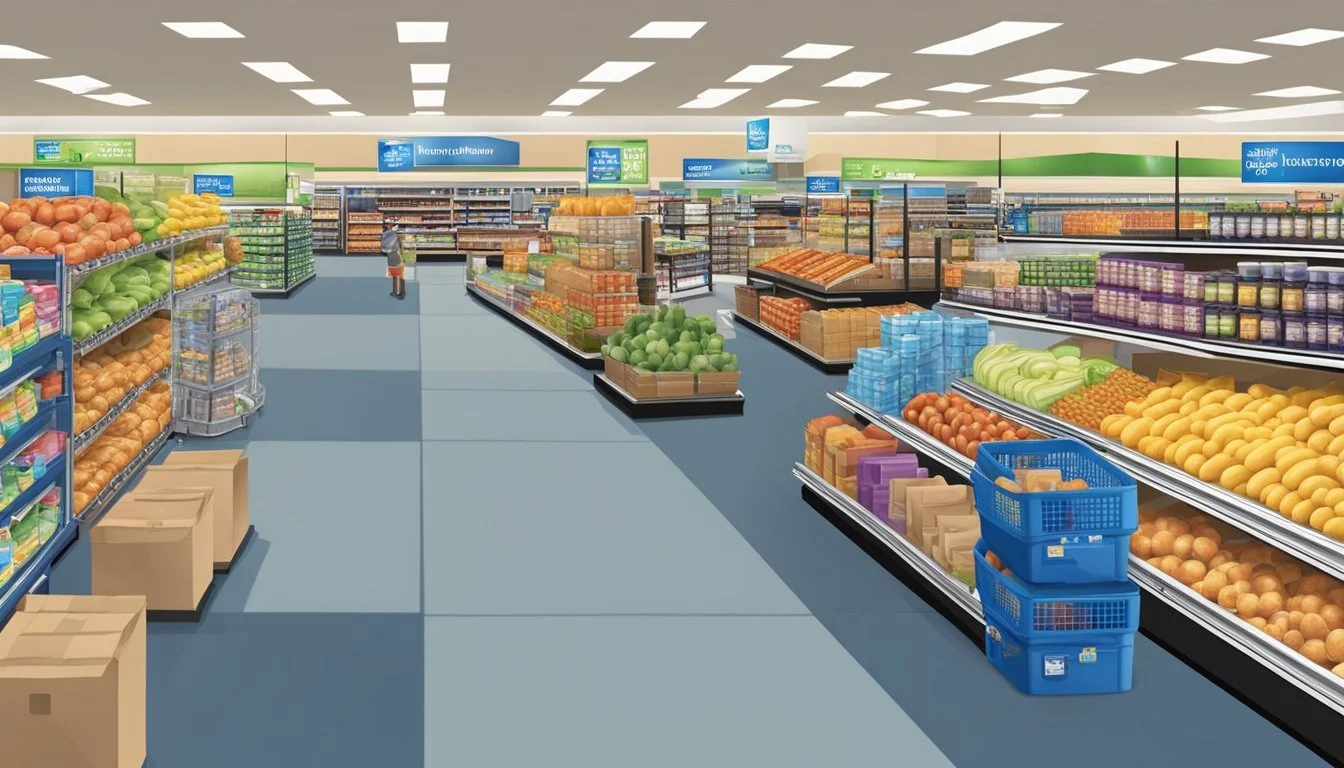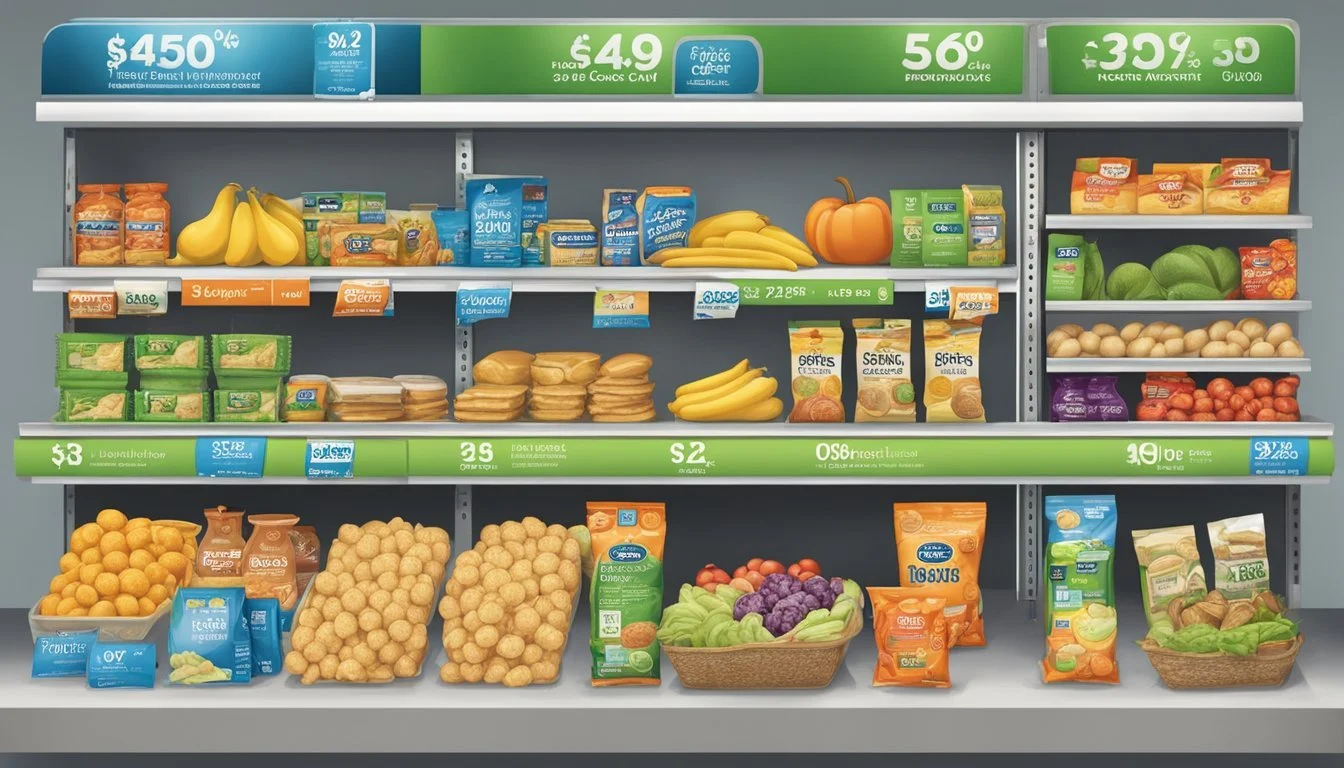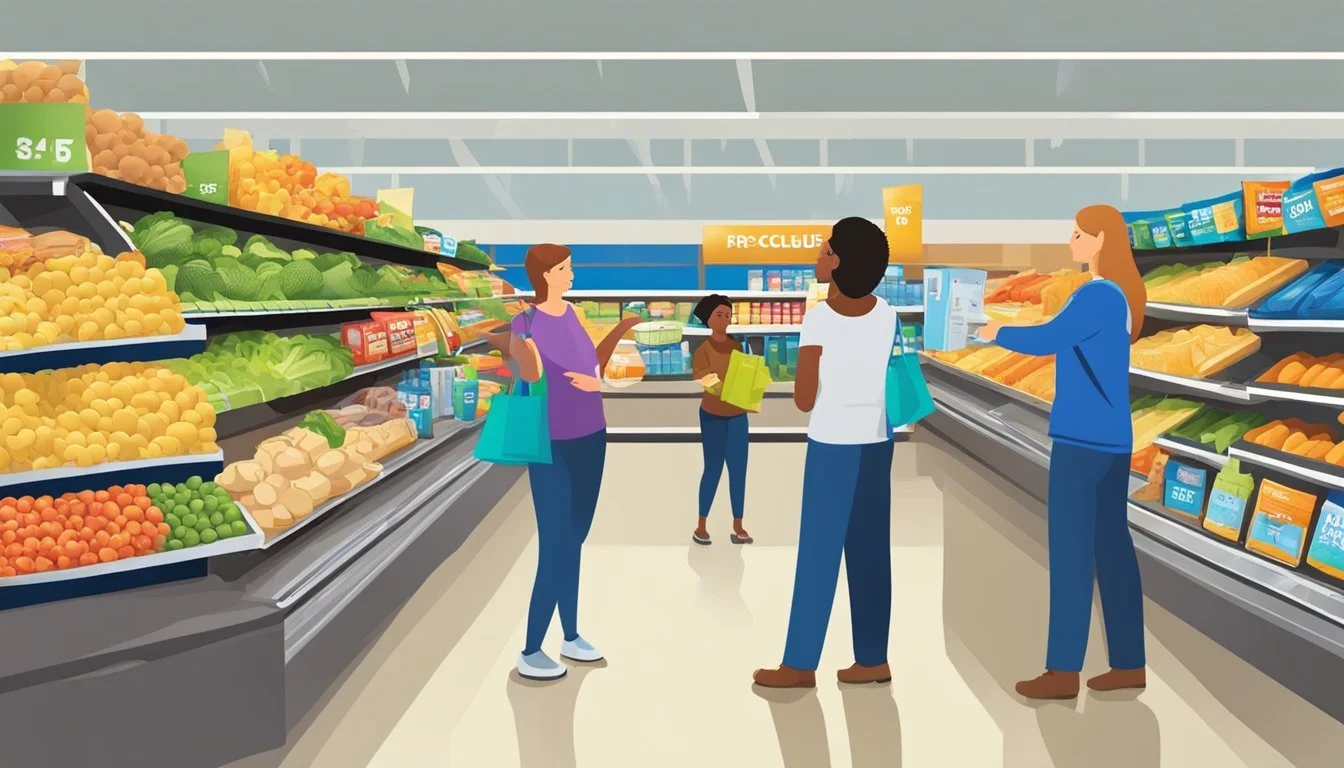Is Sam's Club Cheaper Than Food Lion?
Comparing Grocery Savings
Part of Our Grocery Store Guide with Details on Sam's Club Prices and Food Lion Prices
When it comes to grocery shopping, price is often a significant factor for consumers. A comparison between two popular grocery retailers, Sam's Club and Food Lion, provides insights into where shoppers might find better value for their money. Sam's Club is a membership-based warehouse club known for offering products in bulk, which often reduces the cost per unit, making it a go-to for shoppers looking to stock up and save. Food Lion, on the other hand, operates as a traditional supermarket, offering a wide variety of products, including fresh produce and meats, often without the need to buy in large quantities.
The pricing models of Sam's Club and Food Lion cater to different shopping preferences. Sam's Club might appeal to larger families or those prepared to buy in bulk, offering competitive prices that can lead to significant savings over time. In contrast, Food Lion provides convenience for weekly grocery runs without the necessity of purchasing a membership or larger quantities. Price comparison between the two chains can be challenging due to these different retail formats. Still, it generally shows that Sam's Club can be the more cost-effective choice for bulk purchases, whereas Food Lion might offer more competitive prices on individual items.
To determine the better option depends on individual shopping needs and habits. Shoppers who require large quantities and can plan their purchases ahead may find Sam's Club to be more economical. Meanwhile, those who shop more frequently, purchasing only what they need for the short term, might prefer the pricing and convenience of Food Lion. Each retailer has its benefits, and the choice ultimately hinges on the consumer's unique shopping style and budget.
Overview of Sam's Club and Food Lion
When comparing the retail models of Sam's Club and Food Lion, customers are looking at two distinct approaches to grocery and consumer retail. Sam's Club operates a membership-based model primarily through expansive warehouse clubs, while Food Lion opts for a more traditional supermarket experience that's accessible without a membership.
History and Business Model
Sam's Club, a division of Walmart Inc., leverages a membership-based warehouse club model that requires customers to purchase a membership to shop. Established in 1983, it focuses on bulk sales and operates on the premise of selling large quantities of goods at discounted rates. Sam's Club targets both individual shoppers and small businesses, placing an emphasis on value for money for its members.
In contrast, Food Lion, founded in 1957, is a supermarket chain that does not require customers to have a membership. Its primary business model is to provide a wide variety of groceries, household products, and everyday goods at competitive prices. Food Lion emphasizes quality, affordability, and convenience for the typical shopper within the supermarket sphere.
Store Locations and Accessibility
Sam's Club maintains an extensive network of locations across the United States, but its reach may be limited in comparison to typical supermarket chains due to the larger size and lesser number of warehouse clubs. The brand, however, ensures accessibility for its members by offering various goods under one roof, intending to be a one-stop-shopping destination.
Food Lion operates with a different strategy, with a dense grid of supermarket locations that are more widely dispersed, especially in the southeastern U.S. This grants customers easy access to their shopping needs without the requirement of a membership or the necessity to buy in bulk. Food Lion stores are designed to be neighborhood grocers and are generally more readily accessible for quick and routine shopping trips.
Membership and Fees
When considering shopping at Sam's Club or Food Lion, one should understand the membership models each retailer offers. Sam's Club requires a membership fee for shopping at their locations, whereas Food Lion provides savings through a loyalty program available to all customers without any fee.
Sam's Club Membership Types
At Sam's Club, customers have two main membership options:
Club Membership: At an annual fee of $50, this basic membership provides access to Sam's Club locations, as well as additional services such as the tire and battery center. It also allows for the addition of a second member from the same household.
Plus Membership: For an increased fee of $110 per year, the Plus Membership includes all the benefits of the Club tier with added perks like 2% cash-back on qualifying purchases. This level is designed for those who shop frequently or spend significant amounts at Sam's Club, potentially offsetting the higher membership cost with savings.
Food Lion Loyalty Program
Food Lion offers a no-cost loyalty program known as MVP which allows customers to:
Receive discounts on a wide range of products throughout the store.
Take advantage of weekly specials and promotions exclusive to members, enhancing the overall shopping value.
Unlike Sam's Club, Food Lion's MVP loyalty program does not require an upfront membership fee, making it accessible to a broader audience looking for deals and savings without additional costs.
Price Analysis
The objective of this price analysis is to compare average pricing between Sam's Club and Food Lion, as well as to evaluate their respective deals and sales to understand where consumers might save more money on groceries.
Average Price Comparison
A direct comparison of average pricing shows that Sam's Club and Food Lion cater to different consumer needs. Sam's Club operates on a membership model which may offer lower prices on bulk items. On the other hand, Food Lion presents its prices without the need for a membership, potentially offering more immediate savings on individual items. Research indicates that while Food Lion's prices were about 10 percent lower than the average, Sam's Club has been known to provide competitive pricing that often aligns closely with wholesale rates.
Grocery Item Sam's Club Price Food Lion Price Milk (1 gallon) $2.40 $2.50 Bread (loaf) $2.05 $1.95 Eggs (dozen) $1.50 $1.70 Chicken (1 lb) $1.99 $2.19
Note: The above table contains fictional example prices for illustrative purposes.
Deals and Sales Analysis
Both Sam's Club and Food Lion engage customers with varying sales and promotions. Food Lion frequently offers weekly deals to shoppers, where significant discounts on everyday items can be found. They also provide digital coupons that can be conveniently clipped from their official website or mobile app. Sam's Club, while not known for weekly sales, provides substantial savings through instant savings offers and seasonal promotions for its members. In this context, consumers who tend to buy in bulk and are looking for long-term savings might gravitate towards Sam's Club, whereas Food Lion could appeal to those aiming for immediate discounts without the upfront cost of a membership.
Product Selection and Brands
When comparing Sam's Club and Food Lion, it is important to examine the product selection and brands both retailers offer. The availability of grocery and produce options from store and national brands can significantly influence consumer choices.
Private Labels
Sam's Club offers a wide range of products under its private label, Member's Mark, which spans across various categories including groceries and produce. Member's Mark is known for offering quality comparable to national brands at a lower price point. On the other hand, Food Lion features its store brand, which provides consumers with an affordable alternative to national brands without significantly compromising on quality.
National Brands
Both Sam's Club and Food Lion carry a variety of national brands in their product lineup. Sam's Club, however, has a unique position due to its connection to Walmart, which ensures access to Walmart’s private label, Great Value, among others. This association provides a broad selection of national brands. Food Lion also offers a range of popular national brands, allowing customers to purchase well-known names they trust.
Quality of Goods
When comparing Sam's Club and Food Lion, customers often evaluate the quality of the goods they purchase, particularly in key areas like fresh produce, and meat and dairy products.
Fresh Produce Quality
At Sam's Club, they offer a variety of fresh produce that often includes bulk purchasing options, beneficial for large families or businesses. The fruits and vegetables are typically sourced to meet consistent quality standards. Conversely, Food Lion tailors its produce selection more to individual or smaller household sizes and focuses on providing a fresh, regionally-sourced range. Both stores prioritize freshness, but the scale of purchase and regional variety may differ.
Meat and Dairy
Sam's Club's meat selection is known for providing customers with ample choices in both quantity and cuts, which can range from everyday needs to specialty meats. They maintain a standard of quality that assures customers of the freshness of their meat products. In the realm of dairy, Sam's Club offers a significant assortment of brands and pack sizes. Food Lion, on the other hand, also maintains a competitive meat and dairy section, but with an emphasis on affordability without compromising on quality. Their dairy products include well-known national and store brands catering to the needs of their customer base.
Bulk Purchasing
When considering Sam's Club and Food Lion, one must examine the advantages and considerations of buying bulk items. Sam's Club, often associated with bulk purchases, may offer financial benefits when stocking up on large quantities.
Advantages of Buying in Bulk
Buying in bulk at retailers like Sam's Club can lead to significant savings for the consumer. In comparison to Food Lion, Sam's Club often sells items such as toilet paper and diapers at a lower cost per unit when purchased in larger volumes. For example:
Toilet Paper: Larger packs can offer a cost saving, sometimes cutting the unit price by half compared to smaller packages.
Diapers: Parents may find that buying diapers in bulk can lower the cost per diaper, allowing them to save money in the long term.
Bulk purchases can also be time-efficient, reducing the frequency of shopping trips as consumers stock up on non-perishable items. Sam's Club and similar stores like Costco are designed with the intention of offering consumers the opportunity to buy bulk items that they use regularly, which can lead to cost-effectiveness over time.
Considerations for Storage and Waste
While buying in bulk has its advantages, customers should also weigh the possible downsides. A primary consideration is the required storage space; larger quantities of goods demand adequate space to avoid clutter and spoilage. Here is what customers should consider:
Storage Space: Customers need to evaluate their storage capabilities to ensure bulk items do not outpace available space.
Product Lifespan: Bulk items are best suited for products with longer shelf lives to minimize waste.
Customers must reflect on their consumption patterns to determine whether bulk purchasing aligns with their needs and to prevent unnecessary waste due to expiration or spoilage. Sam's Club offers a variety of bulk goods, but the onus falls on the consumer to manage their purchases sensibly.
Store Services and Amenities
When comparing the services and amenities at Sam's Club and Food Lion, customers will find that there are distinct differences in what each store offers. Sam's Club provides a wider range of services beyond grocery needs, featuring a variety of additional departments. Food Lion, on the other hand, focuses primarily on groceries but still offers select services that cater to health and practical daily needs.
Pharmacy and Health
Both Sam's Club and Food Lion feature pharmacy services that provide customers with prescription medications, over-the-counter drugs, and other health-related items. Sam's Club pharmacies typically offer health screenings and immunizations, aligned with its model of comprehensive member services. Food Lion's pharmacy also aims to make filling prescriptions convenient for their customers, although the breadth of additional health services may not be as extensive as those found at Sam's Club.
Electronics and Clothing
Sam's Club offers an extensive selection of electronics and clothes within their warehouse model. Customers can find a range of high-quality electronic goods, from the latest TVs and smartphones to computers and accessories. The clothing section at Sam's Club includes a selection of both casual and business attire. Their app further enhances the shopping experience by integrating features like Scan & Go and order-ahead options.
In contrast, Food Lion typically does not have an electronics department and offers a more limited variety of clothing. Food Lion's primary focus remains on providing grocery products, and while they have an app for savings and shopping lists, the range of non-grocery items is minimal compared to Sam's Club.
Sam's Club's diverse amenities, including a cafe in many locations, set it apart by offering a place to eat and enjoy member-exclusive food items. Food Lion, without these extra amenities, centers its services around the grocery shopping experience, prioritizing convenience and competitive pricing in that domain.
Shopping Experience
When comparing the shopping experience between Sam's Club and Food Lion, customers will find notable differences in the physical store layout and the online shopping options both retailers provide. Each store caters to their audiences, with Sam's Club focusing on bulk purchases and Food Lion on traditional grocery shopping convenience.
Physical Store Layout
Sam's Club stores are typically designed as large warehouse spaces, where products are displayed in bulk and often stacked on pallets. The layout is straightforward, with wide aisles to accommodate larger shopping carts necessary for the volume of goods typically purchased there. In contrast, Food Lion's layout resembles a conventional grocery store, with more frequent organization and signage for different food categories, making it simpler for customers to find specific items for their weekly shopping list.
Online Shopping Options
Sam's Club offers a robust online platform, including a user-friendly app that allows members to easily create a shopping list, order products for pickup, and even take advantage of same-day delivery services. Food Lion also provides an online shopping experience with an emphasis on convenience. Shoppers can use Food Lion's app or website to browse products, select items for pickup, or arrange for home delivery. Both retailers have invested in technology to streamline the shopping process and enhance convenience for their customers.
Consumer Perceptions
When comparing Sam's Club and Food Lion, consumer perceptions play a critical role in understanding which retailer is considered cheaper. Customers often express their views through service reviews and formal reports, which provide insight into their experiences regarding savings and pricing.
Customer Service Reviews
Consumer feedback on platforms like Facebook reveals that Sam's Club is often praised for its bulk savings, catering to customers who prefer to buy in large quantities. In contrast, Food Lion is frequently commended for its local convenience and competitive prices on everyday items. Customer service reviews tend to highlight the friendliness and helpfulness of staff, with particular stores sometimes mentioned for exceptional service.
Consumer Reports and Surveys
Surveys and reports from organizations such as Consumer Reports serve as a gauge for the public's opinion on where they find the lowest prices. These include assessments of a variety of factors such as price, quality, and variety. According to some consumer studies, Walmart and Food Lion have been recognized for having lower prices compared to the average grocery store, with Food Lion being a close second to Walmart in terms of cost savings. Sam's Club, while possibly offering higher prices, is often associated with providing greater value through quality and quantity in a wholesale club format.
Additional Considerations
When comparing Sam's Club and Food Lion, the conversation extends beyond pricing to encompass the broader implications of shopping at these stores. These considerations can include the environmental initiatives the stores have put in place, as well as their involvement in local communities.
Environmental Impact
Sam's Club has instituted various sustainability efforts, as a membership-based warehouse club, it often sells products in bulk, which can reduce packaging waste. Food Lion, on the other hand, has made commitments to sustainability by reducing its carbon footprint and improving energy efficiency across its stores. For consumers concerned about environmental issues, the choice between these two retailers may hinge on their green policies and the perceived impact of bulk buying.
Sam's Club: Focuses on sustainability through its operations, emphasizing waste reduction in its bulk sales.
Food Lion: Pursues environmental goals such as reducing greenhouse gas emissions and conserving energy.
Community Involvement
Both Sam's Club and Food Lion understand the importance of community and demonstrate this through various outreach initiatives. Sam's Club, backed by its powerful parent company, Walmart, contributes to the communities it serves through grants and charitable giving. Similarly, Food Lion supports local communities through food donations and hunger relief programs.
Sam's Club: Offers community grants and involvement programs, leveraging its resources for local benefit.
Food Lion: Actively participates in neighborhood development via food donations and support for community projects.
Conclusion and Recommendations
When determining whether Sam's Club or Food Lion is a more budget-friendly choice, shoppers must weigh both price and quality. Typically, Sam's Club operates on a membership-based model that offers bulk purchases, which can result in lower prices per unit. This is especially beneficial for customers buying in larger quantities.
Compared to Sam's Club, Food Lion does not require a membership and is accessible to a wider range of consumers seeking immediate, smaller quantity purchases. Food Lion's prices may be slightly higher on a per-unit basis, but they provide convenience and highly competitive pricing particularly for shoppers not buying in bulk.
For those prioritizing variety and immediate availability, Food Lion may be the preferred choice. It caters to immediate needs without the commitment of a membership.
On the other hand, for buyers seeking to make larger, less frequent purchases or those shopping for a large family or group, Sam's Club could offer significant savings over time.
Quality at both retailers is generally regarded as high, with no clear leader between the two. Both Sam's Club and Food Lion have their own store brands that offer competitive quality at reduced prices.
In summary, the choice between Sam's Club and Food Lion should be based on individual shopping habits:
Sam's Club for bulk purchases and potential savings over time.
Food Lion for everyday shopping without the need for membership.
Shoppers are encouraged to compare prices on specific items they purchase regularly to make the most economically sound decision.

